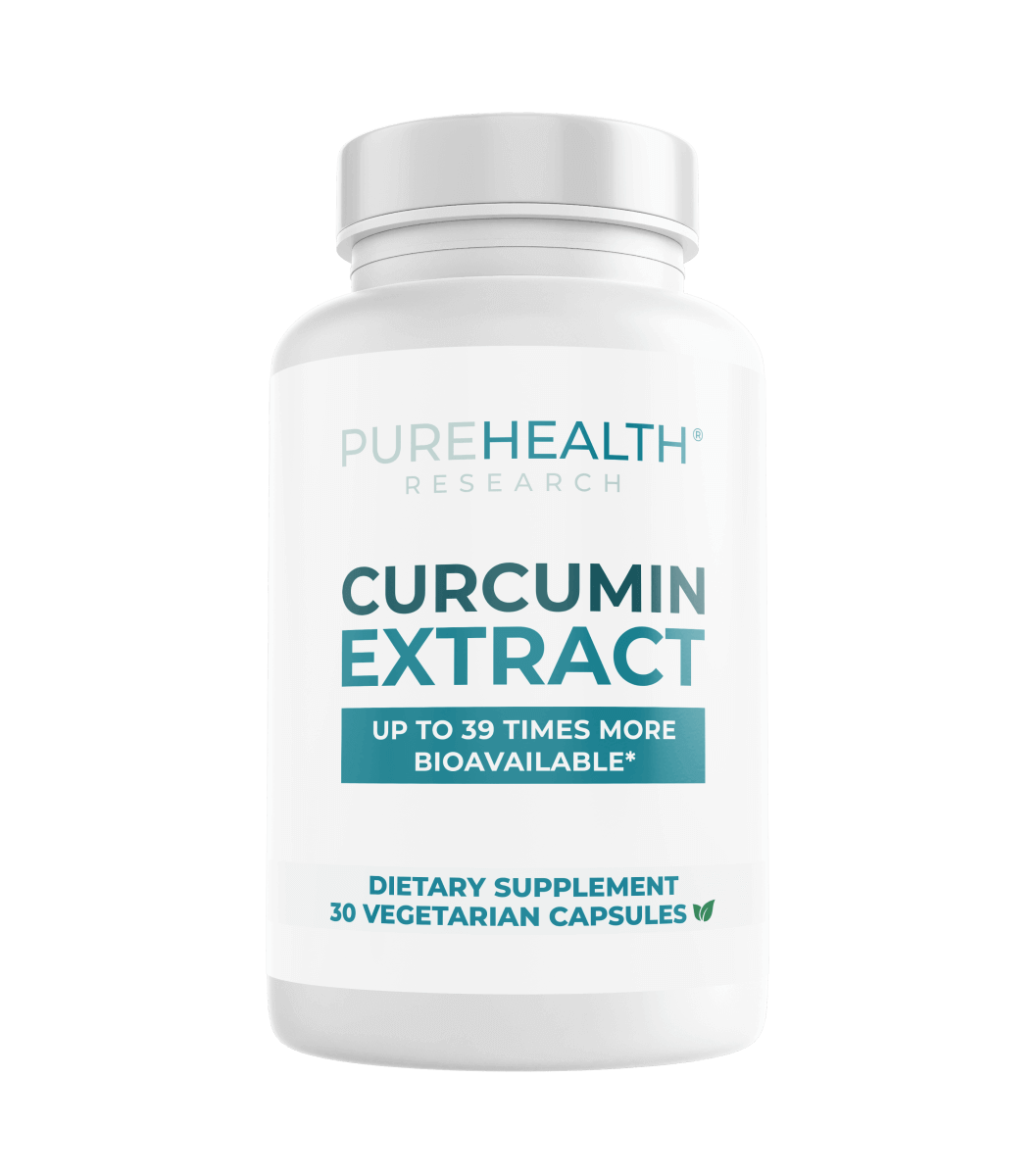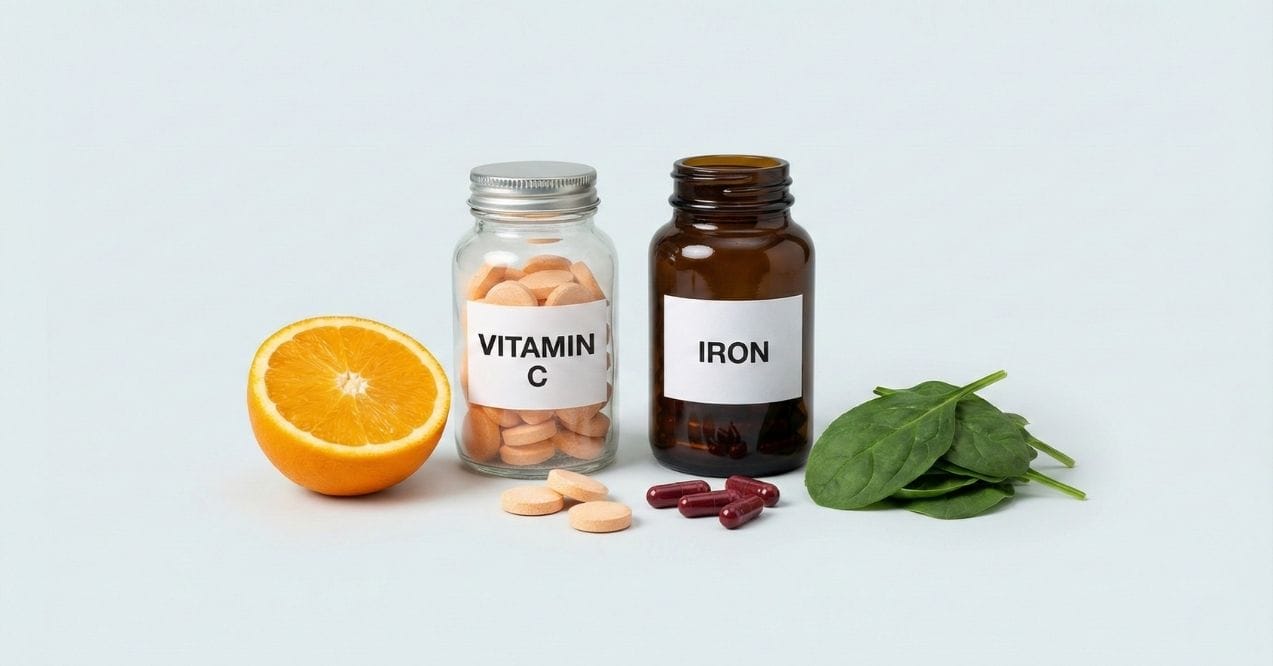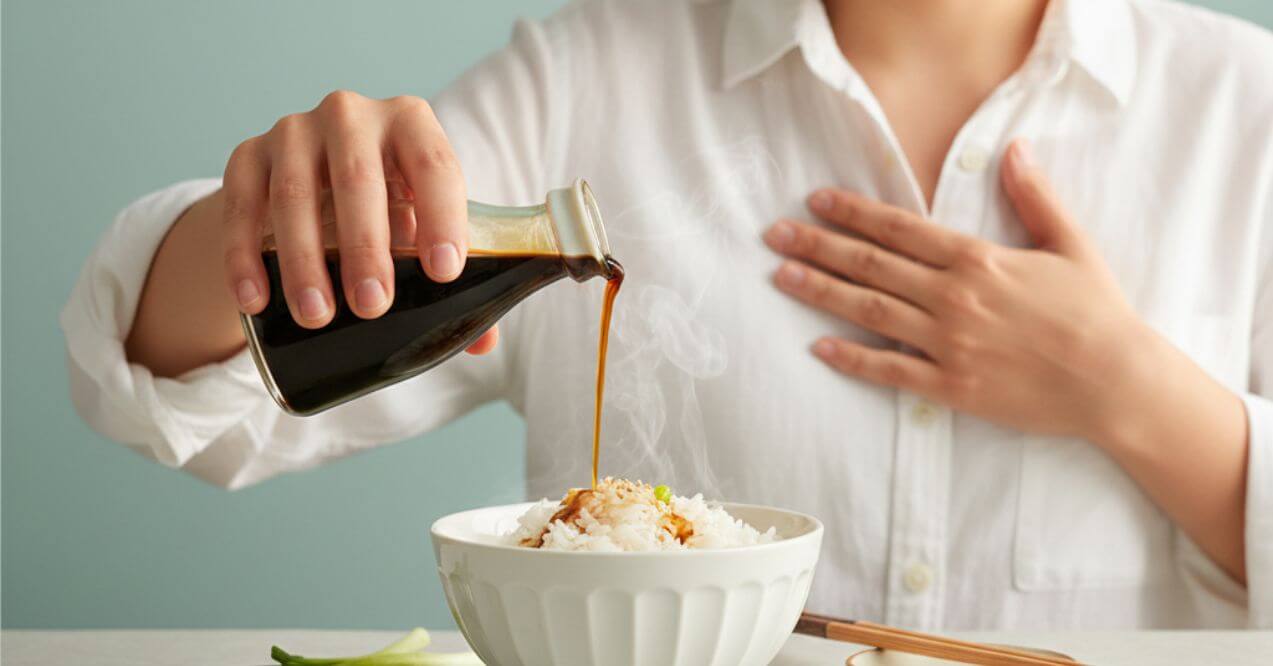Blue Lotus Tea: Why Is It So Popular?
Discover why blue lotus tea is gaining popularity for relaxation. Learn about its ancient origins, calming benefits, and brewing methods.
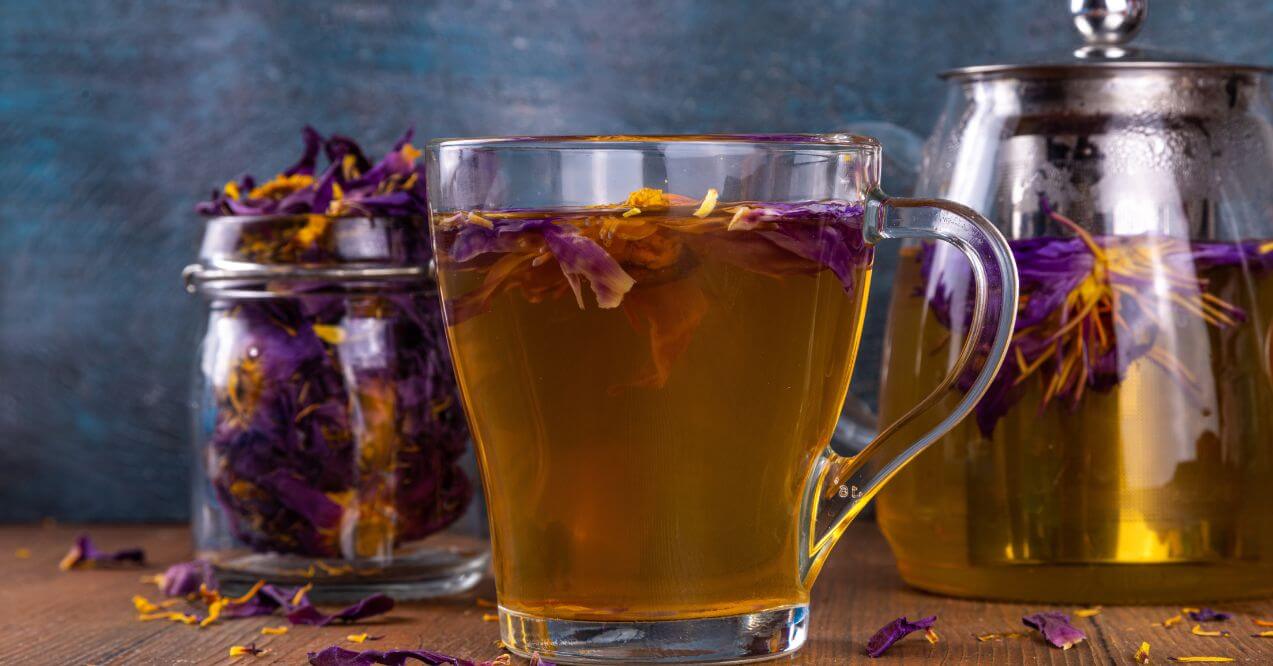

In today’s fast-paced world, many people are turning to ancient wellness traditions for balance and comfort. Herbal teas have surged in popularity, with blue lotus tea emerging as a standout favorite among those seeking natural alternatives. This remarkable flower infusion has captivated cultures for thousands of years, from the banks of the Nile to Buddhist temples across Asia.
Blue lotus tea offers a glimpse into ancient wisdom while supporting modern wellness goals. In this blog, we’ll explore the fascinating origins of this botanical treasure, its potential benefits, gentle effects, and why it continues to attract devotees in our contemporary world.
What Is Blue Lotus Tea?
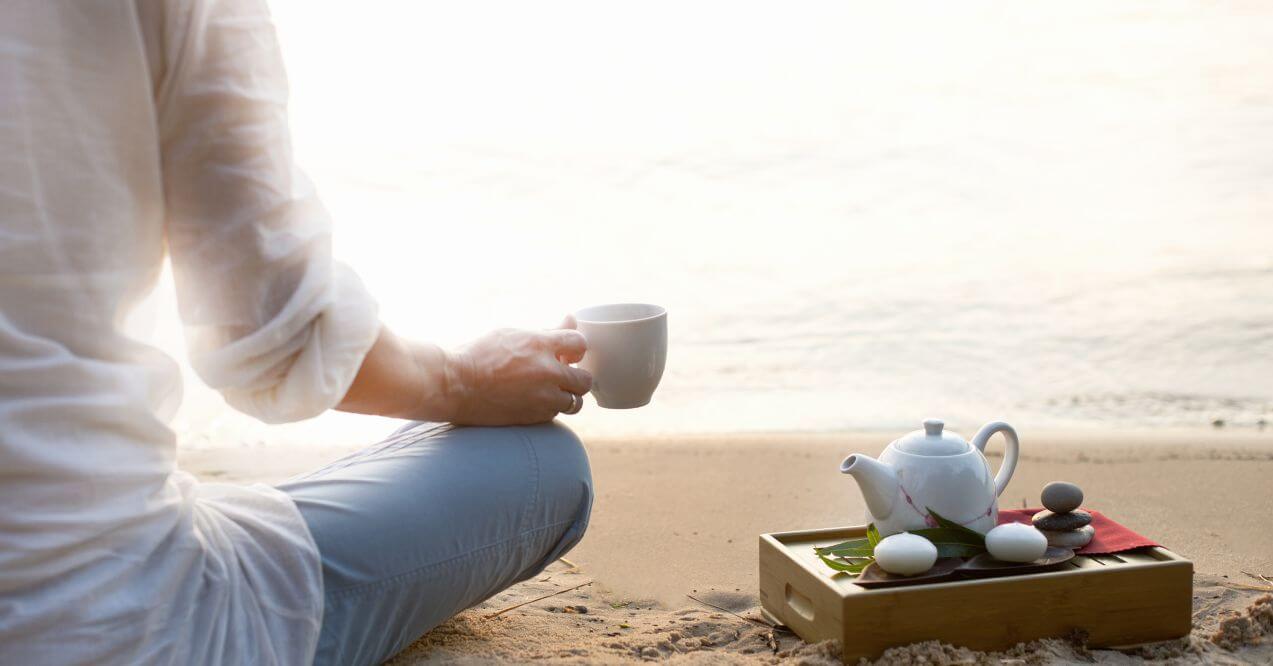
Blue lotus tea comes from the dried petals of the Nymphaea caerulea flower, commonly known as the Egyptian blue lotus flower. This elegant aquatic plant features stunning blue-purple petals that transition to a creamy white center, creating a striking visual display. When brewed, it produces a golden amber liquid with a delicate floral aroma and a subtle, naturally sweet taste with earthy undertones.
The blue lotus flower holds deep historical significance across multiple civilizations:
- Ancient Egyptians revered it as a sacred symbol of rebirth and used it in ceremonial gatherings and spiritual practices.
- Thai culture incorporated it into traditional rituals to promote relaxation and mindfulness.
- Buddhist traditions valued the flower for meditation support and as a representation of spiritual awakening.
As a water-dwelling plant, the blue lotus has a unique life cycle. It opens its blossoms at dawn, reaching full bloom in the morning sunlight, and gently closes again at dusk. This daily rhythm reflects its connection to both sun and water elements.
The plant naturally contains gentle alkaloids that contribute to its distinctive properties. These compounds, developed as part of the flower’s natural defense system, are what many enthusiasts appreciate about this timeless botanical beverage.
Why Is Blue Lotus Tea So Popular?
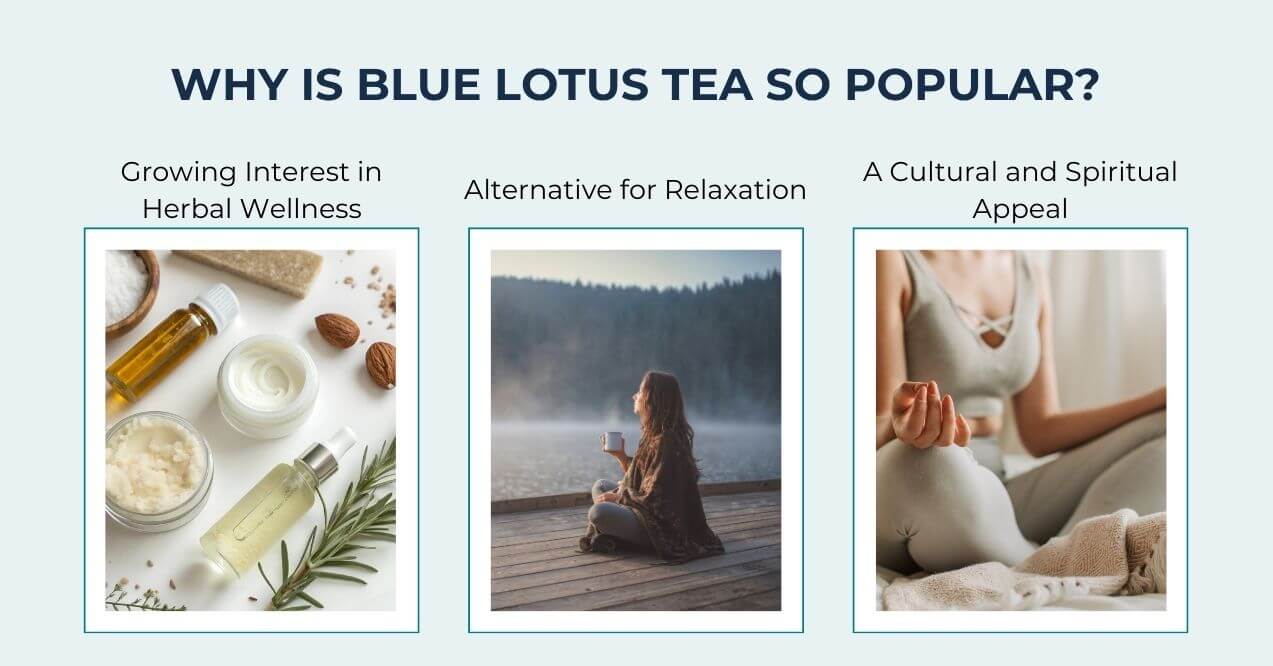
Egyptian blue lotus tea has experienced a remarkable resurgence in popularity among wellness enthusiasts. This ancient beverage appeals to modern consumers seeking natural alternatives that support relaxation without unwanted side effects. Its rich historical background combined with gentle properties makes it particularly attractive to those exploring traditional plant wisdom.
1. Growing Interest in Herbal Wellness
Today’s wellness landscape has shifted dramatically toward natural, plant-based options:
- More people are exploring alternatives to synthetic products
- Ancient traditions are being rediscovered and appreciated for their time-tested wisdom
- Consumers are becoming more educated about botanical ingredients and their properties
- Sustainability and connection to nature have become important values
This cultural shift has created the perfect environment for traditional herbs like blue lotus to gain recognition among those seeking gentle support for their wellness routines.
2. Alternative for Relaxation
Blue lotus tea benefits those looking for natural ways to unwind without common drawbacks of other options:
- Contains no caffeine, making it suitable for evening enjoyment
- Provides a gentle experience without morning grogginess
- Offers an alcohol-free alternative for social relaxation
- Supports a calm mind while maintaining mental clarity
Many enjoy a cup after a busy day to transition into a more peaceful evening state without disrupting sleep patterns.
3. A Cultural and Spiritual Appeal
The spiritual legacy of blue lotus continues to resonate with modern practitioners:
- Meditation enthusiasts appreciate its supportive qualities for deepening practice
- Those interested in mindfulness find it complements their focus rituals
- People exploring dream awareness are drawn to its traditional associations
- Its connection to ancient wisdom provides a sense of continuity with the past
This cultural dimension adds depth to the experience, making it more than just another herbal option.
Benefits of Blue Lotus Tea
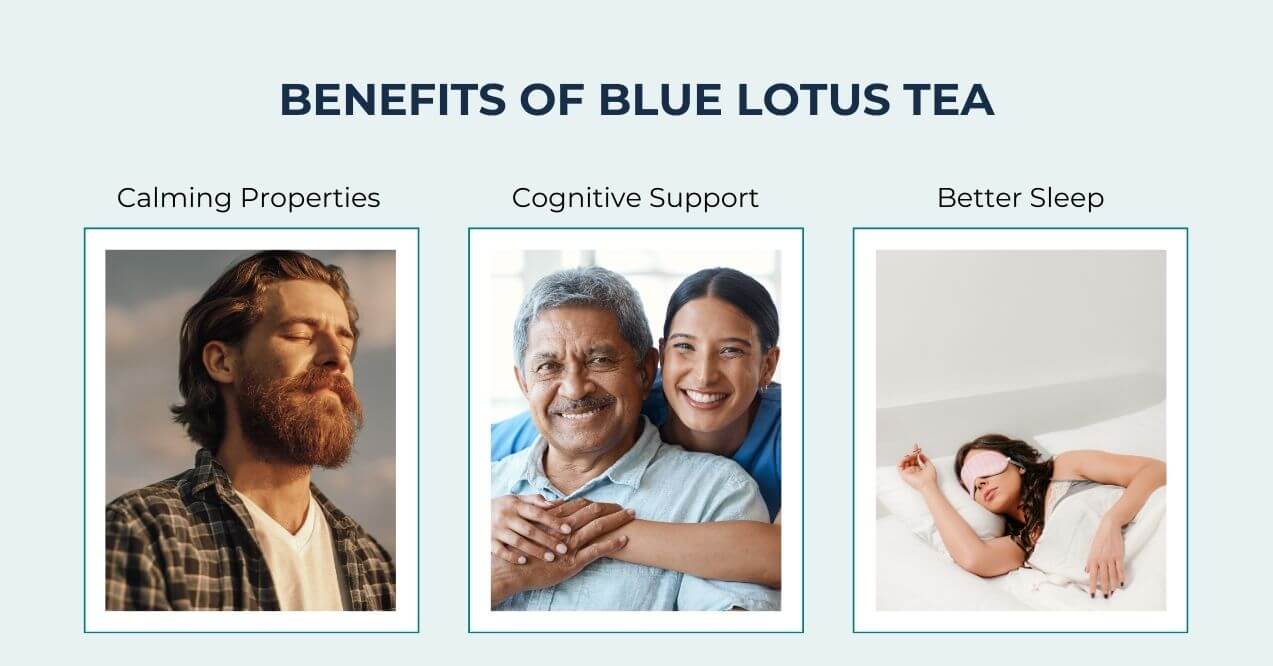
Blue lotus tea offers a variety of gentle effects that have made it a treasured botanical throughout history. While modern research on this ancient plant is still developing, enthusiasts consistently report several beneficial properties. Understanding these blue lotus effects can help you determine if this herbal option might complement your wellness routine.
1. Calming Properties
The natural alkaloids found in blue lotus tea are known for their subtle calming influence:
- Supports a balanced response to everyday stress
- Promotes a sense of tranquility without sedation
- Helps maintain emotional equilibrium during challenging times
- Creates a gentle relaxation that many find appealing after busy days
These properties make blue lotus tea particularly popular during evening wind-down routines. The mild nature of these effects allows for relaxation without compromising alertness, making it suitable for various situations.
2. Cognitive Support
Many blue lotus tea enthusiasts appreciate its influence on mental clarity:
- Supports focused attention during contemplative practices
- Maintains mental clarity while promoting relaxation
- Complements creative activities by balancing focus and flow
- Helps preserve presence of mind during meditation
Artists, writers, and those engaged in mindfulness practices often incorporate this botanical beverage into their routines to maintain a balanced state of awareness and creativity.
3. Better Sleep
Perhaps one of the most intriguing aspects of blue lotus tea is its traditional association with dream states:
- May support deeper relaxation before sleep
- Some users report enhanced dream recall after regular consumption
- Traditional practices have long connected it with vivid dream experiences
- Can complement existing dream journaling and awareness practices
This connection to dream consciousness makes blue lotus tea particularly appealing to those exploring conscious dreaming and dream interpretation as part of their personal growth journey.
How to Brew and Enjoy Blue Lotus Tea
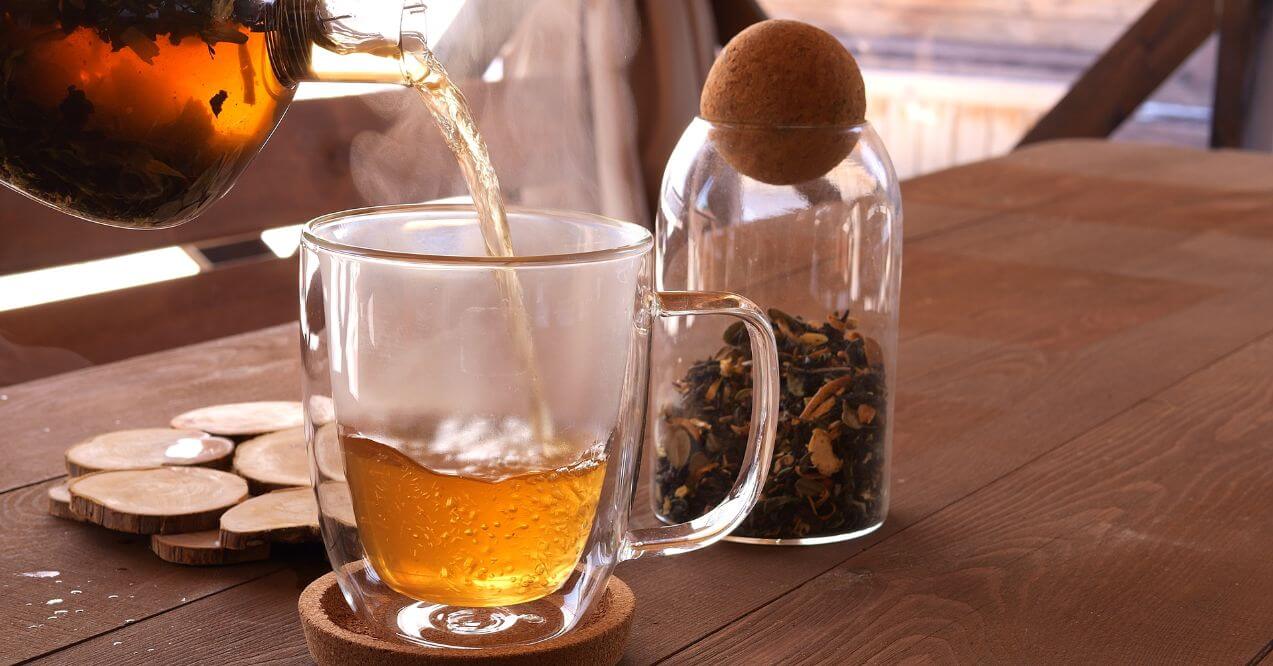
Preparing blue lotus tea properly ensures you’ll experience its full range of delicate flavors and beneficial properties. This versatile botanical can be enjoyed in several ways, allowing you to customize your experience based on personal preferences and the time of year.
Traditional Brewing Method
For the most authentic experience, follow these simple steps:
- Use 1-2 teaspoons of dried blue lotus flowers per cup of water
- Heat water to 190-200°F (just below boiling)
- Pour hot water over the flowers in a teapot or cup
- Cover and steep for 5-7 minutes
- Strain and enjoy plain or with a touch of honey if desired
The longer steeping time allows the water-soluble compounds to fully release into your beverage. A clear glass teapot enhances the experience by showcasing the beautiful color transformation as it steeps.
Combining with Other Herbal Ingredients
Blue lotus tea pairs wonderfully with complementary herbs:
- Chamomile adds additional calming properties and a honey-like sweetness
- Lavender enhances the floral profile and relaxation benefits
- Peppermint creates a refreshing contrast to the earthy blue lotus flavor
- Rose petals complement the floral notes while adding visual appeal
These combinations allow you to create personalized blends that address specific needs or preferences.
Preparing Cold Brew or Infusions
For warmer months, try these refreshing alternatives:
- Cold brew by steeping flowers in cool water for 8-12 hours in the refrigerator
- Add blue lotus to lemonades or fruit-infused waters
- Freeze into ice cubes to add subtle flavor to any beverage
- Use as a base for herbal mocktails with added citrus and honey
The cold brewing process creates a milder flavor profile that many find especially pleasant during summer months.
Natural Herbs That Provide Similar Benefits to Blue Lotus Tea
If you’re exploring herbs that support overall wellness, several botanicals offer benefits comparable to blue lotus tea. These natural alternatives can complement your wellness routine or provide options when blue lotus isn’t available:
- Ashwagandha – Considered as one of the best herbs for thyroid health, it supports stress balance and promotes relaxation without drowsiness.
- Passionflower – Encourages calmness and helps ease tension. Its gentle properties make it popular for evening routines.
- Valerian Root – Known for its natural soothing properties, often used for relaxation. Many appreciate its support for restful evenings.
- Holy Basil – Helps promote emotional balance and mindfulness. This sacred herb has been used in traditional practices for centuries.
- Lemon Balm – Supports a calm and focused state, making it ideal for relaxation. Its pleasant citrus notes make it enjoyable as a daily beverage.
- Curcumin – Enhances mood balance and cognitive function, supporting overall well-being. This bright yellow compound is valued for its numerous beneficial properties.
Incorporating high-quality supplements alongside herbal teas can be an effective way to support your wellness journey. Curcumin Extract features 100% Curcugen® in a highly effective formulation. This premium extract is 52.5 times more bioavailable than standard 95% curcuminoid extracts, allowing for optimal absorption throughout your body.

The unique properties of Curcugen® support your body’s natural balance and help maintain healthy tissues. This premium ingredient promotes overall comfort and supports an active lifestyle while complementing other wellness practices like herbal teas.
Considerations Before Drinking Blue Lotus Tea
While exploring the best teas for inflammation and overall wellness, it’s important to approach blue lotus tea with appropriate awareness. Those taking medications should consult with a healthcare provider before adding new herbs to their routine. Similarly, pregnant or nursing individuals should seek professional guidance before incorporating blue lotus tea into their wellness practices. If you have known plant allergies, it’s wise to introduce this or any new botanical slowly.
As with any wellness practice, the key is to listen carefully to your body’s signals and adjust accordingly. Starting with a lower strength brew allows you to observe how this gentle herb works with your individual system.
Conclusion
Blue lotus tea stands as a timeless botanical treasure that bridges ancient wisdom with modern wellness practices. Its gentle properties and rich cultural heritage make it a meaningful addition to contemporary self-care routines. Whether you’re drawn to its subtle calming effects, its support for mindfulness, or simply its delightful flavor, blue lotus tea offers a connection to centuries of traditional botanical knowledge.
As you explore your personal wellness journey, consider how this remarkable flower might complement your existing practices. By approaching blue lotus tea with both appreciation for its history and awareness of your individual needs, you can experience the unique benefits this celebrated herb has offered throughout the ages.
Blue lotus is special for its historical significance in ancient Egyptian and Buddhist cultures, its gentle calming properties, and its unique alkaloid profile that supports relaxation while maintaining mental clarity.
Blue lotus flower contains mild natural compounds that promote relaxation and mental clarity. It doesn’t produce intoxicating effects but rather supports a subtle sense of calm awareness and emotional balance.
Lotus is popular for its remarkable symbolism across cultures, its gentle wellness-supporting properties, its beautiful appearance, and its long historical use in traditional practices for promoting relaxation and mindfulness.
Pink lotus (Nelumbo nucifera) contains different compounds than blue lotus and is primarily valued for its seeds and roots in traditional practices. It supports overall wellness rather than having significant psychoactive properties.
Lotus is unique for its ability to emerge beautifully clean from muddy waters, its daily cycle of opening and closing with the sun, its remarkable seed viability (lasting centuries), and its complete utilization in traditional practices.
Sign up for our Healthy Living newsletter!
Advertisement. This site offers health, wellness, fitness and nutritional information and is designed for educational purposes only. You should not rely on this information as a substitute for, nor does it replace, professional medical advice, diagnosis, or treatment. If you have any concerns or questions about your health, you should always consult with a physician or other health-care professional. Do not disregard, avoid or delay obtaining medical or health related advice from your health-care professional because of something you may have read on this site. The use of any information provided on this site is solely at your own risk.
